Michelle Blom
Strategy Extraction in Single-Agent Games
May 22, 2023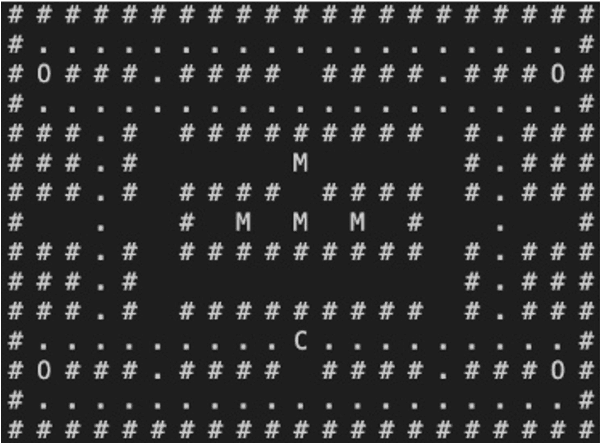
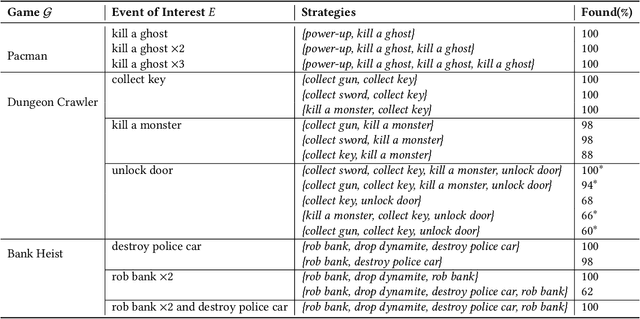


Abstract:The ability to continuously learn and adapt to new situations is one where humans are far superior compared to AI agents. We propose an approach to knowledge transfer using behavioural strategies as a form of transferable knowledge influenced by the human cognitive ability to develop strategies. A strategy is defined as a partial sequence of events - where an event is both the result of an agent's action and changes in state - to reach some predefined event of interest. This information acts as guidance or a partial solution that an agent can generalise and use to make predictions about how to handle unknown observed phenomena. As a first step toward this goal, we develop a method for extracting strategies from an agent's existing knowledge that can be applied in multiple contexts. Our method combines observed event frequency information with local sequence alignment techniques to find patterns of significance that form a strategy. We show that our method can identify plausible strategies in three environments: Pacman, Bank Heist and a dungeon-crawling video game. Our evaluation serves as a promising first step toward extracting knowledge for generalisation and, ultimately, transfer learning.
You can do RLAs for IRV
Apr 01, 2020
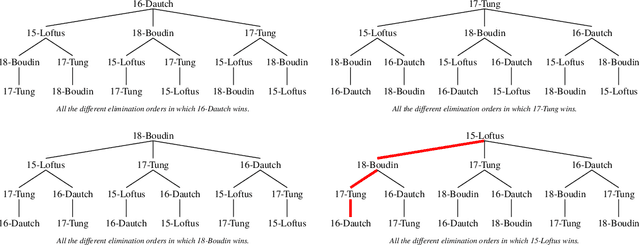
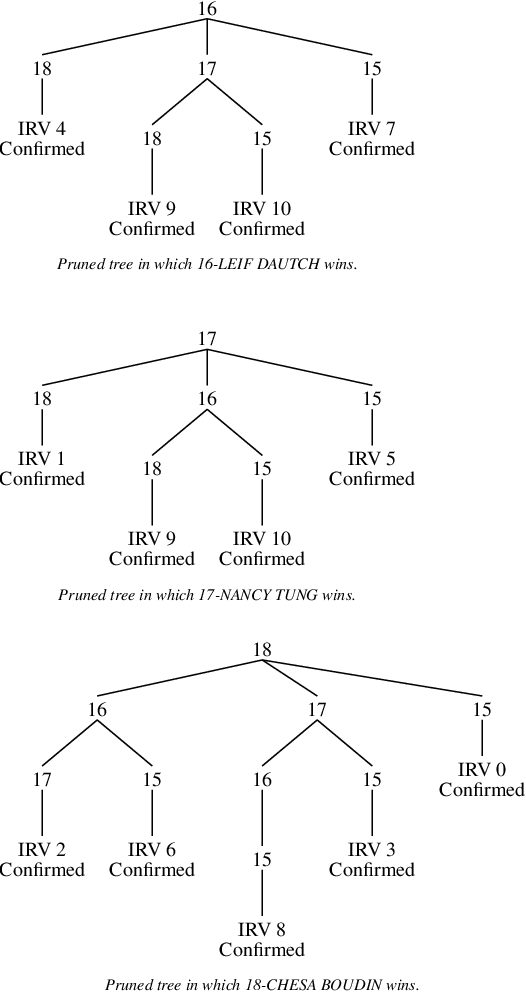
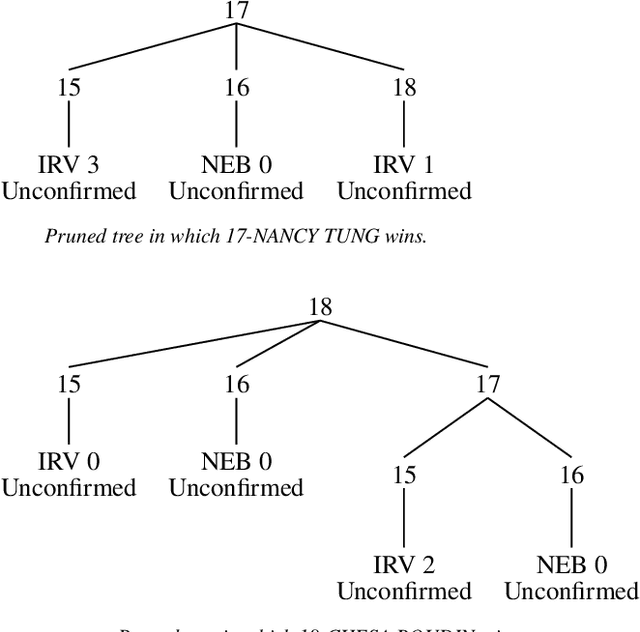
Abstract:The City and County of San Francisco, CA, has used Instant Runoff Voting (IRV) for some elections since 2004. This report describes the first ever process pilot of Risk Limiting Audits for IRV, for the San Francisco District Attorney's race in November, 2019. We found that the vote-by-mail outcome could be efficiently audited to well under the 0.05 risk limit given a sample of only 200 ballots. All the software we developed for the pilot is open source.
Efficient Computation of Exact IRV Margins
Aug 20, 2015

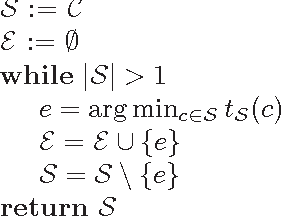
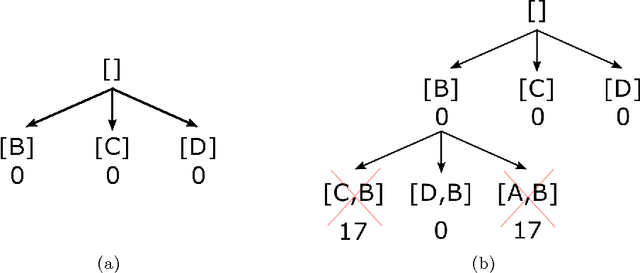
Abstract:The margin of victory is easy to compute for many election schemes but difficult for Instant Runoff Voting (IRV). This is important because arguments about the correctness of an election outcome usually rely on the size of the electoral margin. For example, risk-limiting audits require a knowledge of the margin of victory in order to determine how much auditing is necessary. This paper presents a practical branch-and-bound algorithm for exact IRV margin computation that substantially improves on the current best-known approach. Although exponential in the worst case, our algorithm runs efficiently in practice on all the real examples we could find. We can efficiently discover exact margins on election instances that cannot be solved by the current state-of-the-art.
 Add to Chrome
Add to Chrome Add to Firefox
Add to Firefox Add to Edge
Add to Edge